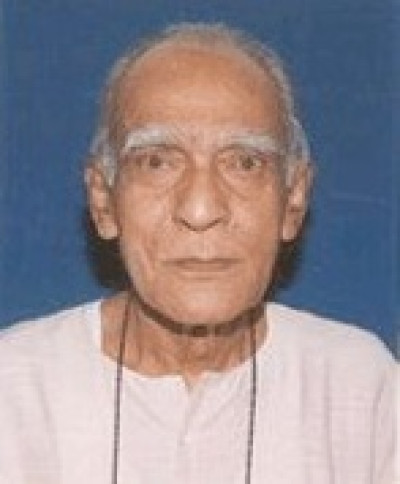Life & Legacy
Early Life and Education
Paragadhar Chaliha was born on 13 September 1923 in Amolapatty, Dibrugarh to Padmadhar Chaliha and Suprabha Chaliha. From a young age, he was immersed in Assamese traditions and developed a passion for literature and social reform.
-
Schooling: His first school was Sivasagar Vidyapeeth, established for students who joined the freedom struggle. Later, after his father shifted to Guwahati as editor of Asomiya Kakot, Chaliha continued at Manik Chandra Middle English School, Uzan Bazar.
-
Examinations: In 1940, he passed the Entrance Examination from Sivasagar Government School with First Division. He completed his Intermediate of Arts (IA) in 1942 from Jagannath Barua College, Jorhat, also in First Division.
-
Quit India Movement: For his active role in the 1942 movement, he was jailed for three months in Tezpur.
-
Higher Studies: After release, he studied at Cotton College, securing a BA (Hons) in 1944 with distinction. In 1946, he obtained his Master’s in Assamese from Calcutta University. He also studied Law at Guwahati Law College (1946–47).
Contributions and Public Service
Chaliha’s life was dedicated to social service, freedom struggle, and cultural upliftment. Some key contributions include:
-
Established a moral and spiritual school in Sivasagar.
-
Instrumental in constructing the first stadium in Sivasagar.
-
Served as an Executive Member of the Sangeet Natak Akademi.
-
First Assamese to become Director at LIC (Mumbai).
-
Secretary of the China Resistance Committee.
-
Actively participated in the Anti-Foreigners Movement (1979–1985), leading to multiple imprisonments.
-
Elected as Member of Parliament (Jorhat Lok Sabha, 1985).
-
Served as President of Asom Gana Parishad (1991–1996) and later as a Rajya Sabha MP (1995–1999).
Cultural Contributions
Parag Chaliha is remembered as a cultural ambassador of Assam.
-
First Assamese to perform a Bihu song on Kolkata Radio.
-
Regular performer on All India Radio.
-
Founded Seujiya Samaj Sangeet Vidyalaya, nurturing talents like Dipali Barthakur and Tultul Bharali.
-
Collaborated with legendary singers such as Pankaj Mullick and Hemanta Mukherjee.
-
Represented India in East Germany (1970) under the Cultural Exchange Program.
Literary Contributions
Parag Chaliha’s writings showcase Assamese culture, nationalism, and human emotions. His works include essays, poetry, plays, and song collections.
Notable Works
-
O Mor Chikuni Desh (1972)
-
Niyati, Prithibi aru Manuh (1952)
-
Bor Luitor Ban
-
Rupohir Bihutoli
-
Yuge Yuge Bihu
-
Bohagir Biya
-
Raj Karengor Sandhiya Eti
-
Rupar Konwar Ahil Sauwa (1950)
-
Aspects of Assamese Culture
-
Charihazar Bosoror Asom (1952)
-
Asomiya Sanskriti aru Sahitya (1973)
-
Son-Rup Neosi (Drama, 1952)
-
Bonponar Mongit (Songbook)
After his death, Trailokya Sharma edited and published Ajanor Amiya Bat, Seuji Konwaror Sourabh, and the monumental Rachanawali (2019, 1200 pages).
Cultural Impact and Legacy
-
Chaliha acted in stage dramas (Piyoli Phukan, Son-Rup Neosi) and films (Aparajeyo, Antony Mor Naam, Siraj).
-
His role in politics and literature highlighted the strength of Assamese identity.
-
The title “Seuj Konwar” (Green Prince) symbolizes his vitality and connection with Assamese ethos.
-
He passed away on 21 June 1999 at 12:05 AM, leaving behind a lasting legacy.
Conclusion
Seuj Konwar Parag Chaliha was more than a writer—he was a freedom fighter, cultural icon, politician, and guardian of Assamese identity. His literary brilliance, patriotic spirit, and cultural leadership continue to inspire generations, making him one of the most respected figures in Assam’s history.
